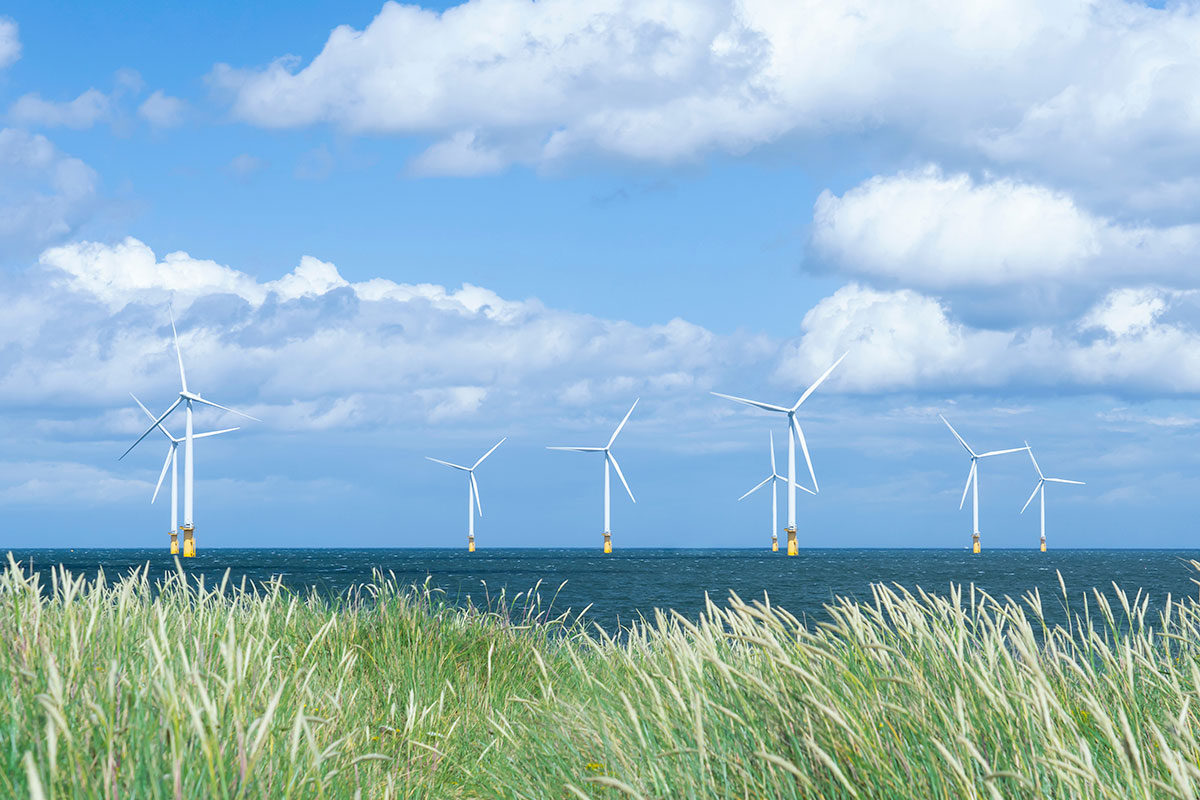RenewableUK has urged the UK Government to change the planning rules to enable more battery storage and green hydrogen projects to be built in tandem with offshore wind farms.
The call comes as part of a new report from RenewableUK, which emphasises the crucial role of co-location in optimising grid usage and improving the UK’s energy security. The report also suggests adjustments to financial support rules as an additional way to boost the construction of colocated projects.
According to RenewableUK, just 3 MW of battery storage capacity is currently operational alongside offshore wind projects in the UK, although 600 MW has already been granted consent. Several developers are also investigating the potential to create green hydrogen at or near offshore wind sites, which can help store clean energy for use whenever it’s needed.
However, RenewableUK’s latest research warns that existing policies and Contracts for Difference rules are not set up to encourage the process – despite what it says are the clear benefits of sharing infrastructure and the pressing need for greater flexibility on the grid.
Among the report’s 10 recommendations are the need for reform to the ownership rules of offshore transmission infrastructure, allowing transmission cable owners and substation operators to build co-located storage projects more easily.
RenewableUK also wants CfD auctions to be tailored to support co-located developments, encouraging the integration of battery and green hydrogen facilities within offshore wind projects. In addition, it calls for planning consent for offshore wind and co-located energy storage to be sought simultaneously, to streamline the approval process.
The final measure it’s urging from the Government is the creation of a network of pipelines to transport green hydrogen from offshore generation sites to onshore hubs.
RenewableUK’s Senior Policy Analyst, Yonna Vitanova, who authored the report, commented, “The UK has a great opportunity to build a more resilient energy system by integrating batteries and green hydrogen projects into offshore wind infrastructure, either at sea or near substations onshore. But at the moment neither the CfD process nor the planning system are set up in a way to encourage this.
“This report provide a blueprint for Government to address the challenges renewable energy developers face when considering co-location as part of their business plans. With clearer rules and regulations in place, the UK can unleash the benefits co-location can provide to the system and ultimately to billpayers”.
By embracing these proposals, the report contends that the UK can make far better use of its growing offshore wind capacity. Both battery storage and green hydrogen solutions can help smooth out fluctuations in renewable generation, reduce potential curtailment, and enhance system resilience. This, RenewableUK argues, will lower costs for consumers, support decarbonisation efforts, and strengthen the UK’s energy independence.

